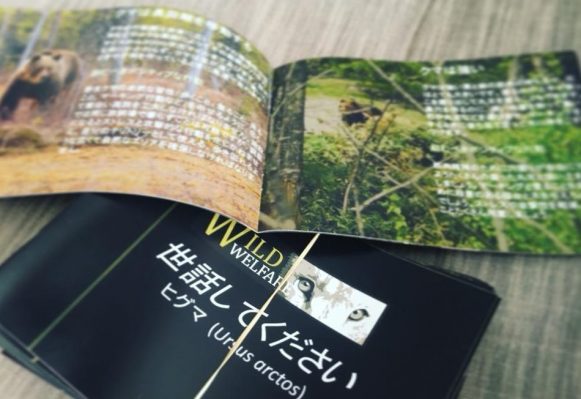Why we’re always translating our animal welfare resources
Sarah Blake is Wild Welfare’s animal welfare field manager and COVID-19 pandemic aside, she visits our overseas projects to work with wildlife facilities and their staff, training them in the good animal care and welfare practices and helping them improve the care they provide their animals. Sarah was instrumental in the development of our digital education programme and works on all the animal welfare resources we use to support the people we help train. In our latest blog, Sarah shares an insight into some of those resources and explains why making them as accessible as possible by translating them into multiple languages, is so crucial to our work.
When the organisation you work for has active animal welfare projects in more than 10 different countries around the world, there are bound to be some language barriers. Overcoming these barriers can be difficult, but absolutely necessary as we continue to challenge and change the practices that compromise animal welfare across the globe. Team effort is crucial to conquer these barriers and requires multiple different approaches. For larger projects requiring hundreds of pages of translation, we occasionally utilise professional translation services, an approach that has been necessary for our Wild About Welfare digital education programme, which is currently being translated into Japanese, with a plan to translate into many more languages after that.
More often than not though, rather than using professional help, we call on an army of supportive volunteers to help us translate our animal welfare resources. Without their help we would never have been able to translate our Enrichment Road Map or some of our Care For Us Guides into all the different languages we have available, including Thai, Korean, Spanish, Japanese and Portuguese. The Care for Us guides offer wildlife carers simple but informative advice on ways in which they can improve welfare for specific species in captivity, by discussing natural behaviours to encourage through animal husbandry practices.
We recently did a call out for volunteer translators to help us with specific language translation work and were delighted with the enthusiastic response.
These generous and skilled people, eager to donate their time and expertise, are all cogs in the machine that helps Wild Welfare communicate with people caring for captive wildlife across the globe – and we are eternally grateful to all of them for their help and support. Communication within the teams we work with in project countries is a vital aspect of ensuring animal welfare improvements are both achievable and sustainable. Not only do we want to be able to communicate important biological and behavioural information to animal care staff, but we also want to instil a sense of passion and enthusiasm so individuals and facilities will continue making positive welfare changes long after we have left the country.
Something that some of our team members try to do is learn a few words of project-country languages, for example one of our charity’s founders and animal welfare consultant, Georgina Groves, has been learning Japanese phrases both during her project work in the country and while at home. I lived and worked in Vietnam and now coordinate some of Wild Welfare’s Vietnamese projects and I learned several words and phrases while there. Although far from fluent, the words and phrases I can recognise and use are vitally important, both for animal welfare (I’ve memorised many words for different forms of animal enrichment) and for polite conversation – addressing different people and using words such as thank you, and even the term for super star when interacting with enthusiastic animal care staff, can take you far in terms of getting ahead when working with people on a project.
As part of Wild Welfare’s mission to improve captive animal welfare standards around the globe, we are dedicated to making all our animal welfare resources and training workshops as accessible as possible and a big part of this will always be by successfully bridging the language barrier. If you would like to browse our animal welfare resources, in whichever language you prefer, take a look at the Resources section of our website HERE.





